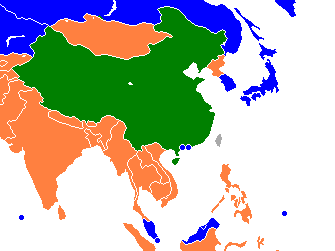According to a new study, Asian institutional investors plan to invest more than $150 billion in global real estate over the next five years. Firms will focus on cities such as Dubai, London, Sydney and New York. The research, conducted by CBRE, revealed that Asian investors currently control a fifth of global institutional capital.
Still, these investors can expect numerous challenges due to low global interest rates and weak stock market performance. Investors are also struggling to expand their portfolios within the Asian Pacific region as a result of a lack of overseas investment experience, regulatory restrictions, limited investable stock and aggressive pricing.
CBRE’s Chris Ludeman explained: “Asian institutional investors are already beginning to acquire assets overseas, with core assets in gateway cities being the most sought after asset class.”
“While investors that have already had exposure in global markets will continue to acquire new assets, the next few years will see a number of new entrants to leading global real estate markets such as London and New York,” he added. “Japanese institutions, which to date have largely been absent from the global scene, as well as Taiwanese and Chinese insurance companies will be the first groups to emerge.”

